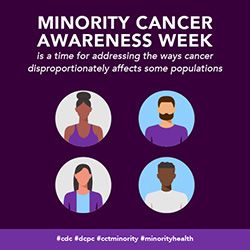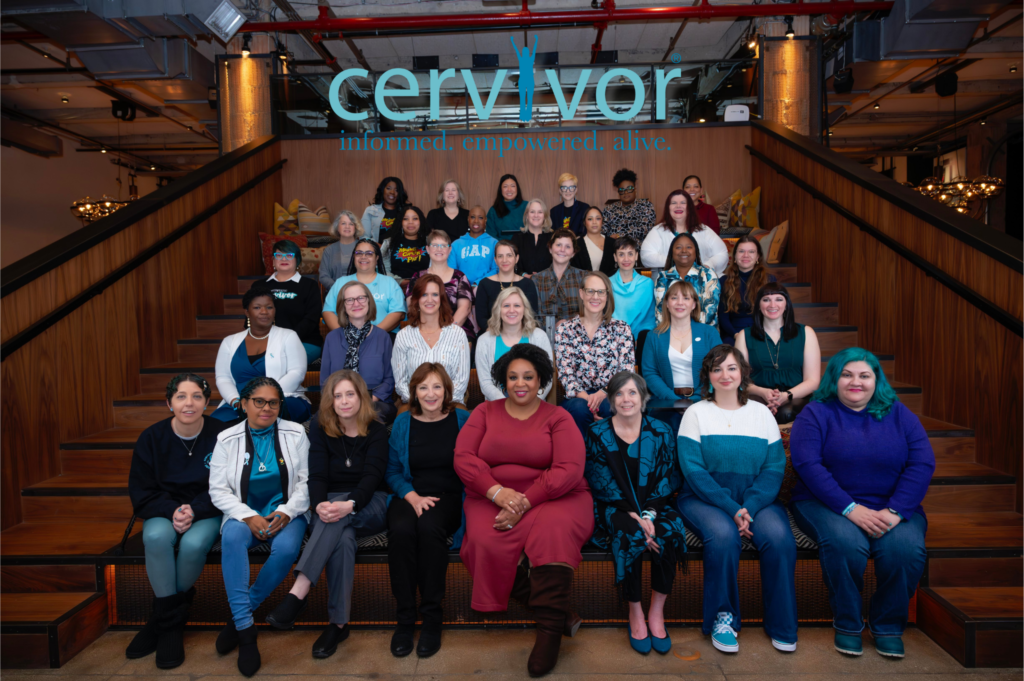In the landscape of healthcare, awareness, and action are essential to address disparities that disproportionately affect marginalized communities. National Minority Cancer Awareness Week serves as a poignant reminder of the health inequities faced by populations historically marginalized, discriminated against, and excluded in American society. It’s a time to not only acknowledge these disparities but also to highlight organizations dedicated to promoting health equity. Among them is Cervivor, Inc., providing education, empowerment, and walking in purpose through advocacy to end cervical cancer.

A Call to Action: Under-represented communities in the United States often experience higher rates of cancer incidence and mortality, coupled with lower survival rates compared to the general population. These disparities are multifaceted, stemming from various factors such as socioeconomic status, lack of access to healthcare, cultural barriers, and systemic discrimination. National Minority Cancer Awareness Week, observed annually in April, provides an opportunity to shed light on these issues and mobilize efforts toward change. During this week, conversations around cancer prevention, early detection, and access to quality care are amplified, with a specific focus on underserved and under-represented communities. It’s a time for education, outreach, and advocacy to address the root causes of health disparities and ensure that all individuals, regardless of race, ethnicity, or socioeconomic background, have equitable access to healthcare resources.
Championing Health Equity: At the forefront of the mission to end cervical cancer and to close the gap in health disparities is Cervivor, Inc. Founded by 23-year cervical cancer survivor Tamika Felder, Cervivor is a non-profit organization dedicated to cervical cancer advocacy, support, and education. What sets Cervivor apart is its commitment to addressing the unique needs of marginalized communities, including communities of color, LGBTQIA+ individuals, rural residents, young adults, and those facing socioeconomic challenges.

Cervivor’s mission extends beyond raising awareness about cervical cancer; it’s about empowering individuals to become advocates for their own health and well-being. Through a combination of educational resources, support networks, and community outreach initiatives, Cervivor works tirelessly to ensure that no one is left behind in the mission to end cervical cancer. One of the cornerstones of Cervivor’s approach is its emphasis on health equity. Recognizing that marginalized communities often face barriers to accessing healthcare, Cervivor strives to bridge these gaps through targeted outreach programs, culturally sensitive resources, and partnerships with organizations that share its commitment to diversity, equity, and inclusion.
Embrace Inclusion: In addition to its focus on cervical cancer advocacy, Cervivor is also actively involved in promoting diversity, equity, and inclusion (DEI) within the healthcare sector.

Through its DEI programming, Chief Diversity Equity and Inclusion Officer, Kimberly Williams and Team Cervivor aim to create a more inclusive healthcare environment where all individuals feel seen, heard, and valued. This includes initiatives to address disparities in cancer care, such as advocating for culturally competent healthcare providers, promoting LGBTQIA+ inclusivity in cancer support services, and raising awareness about the unique needs of minority communities. By spotlighting DEI issues within the healthcare sector, Cervivor is helping cultivate a more equitable and compassionate approach to cancer care. Through collaboration, education, and advocacy, Cervivor is making strides toward a future where everyone has equal access to the resources and support they need to live healthy, fulfilling lives.
Towards a Future of Health Equity: As we observe National Minority Cancer Awareness Week and shine a spotlight on organizations like Cervivor, Inc., it’s crucial to recognize that achieving health equity is a collective responsibility. It requires ongoing commitment, collaboration, and action at all levels of society – from policymakers and healthcare providers to community organizations and individuals. By raising awareness about health disparities, advocating for marginalized communities, and promoting diversity, equity, and inclusion in healthcare, we can work towards a future where everyone has the opportunity to thrive, regardless of their background or circumstances.
Let’s honor the spirit of National Minority Cancer Awareness Week by redoubling our efforts to create a world where health equity is not just a goal, but a reality for all.